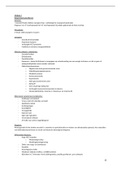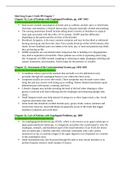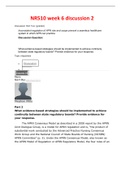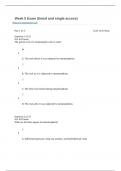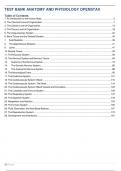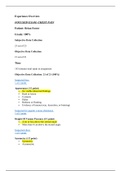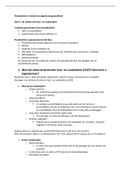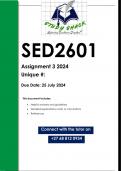Samenvatting
Summary Quantitative Innovation Analytics
Summary of Quantitative Innovation Analytics with the topics: 1) Introduction to the course and quantitative models, 2) Theory and research designs, 3) Linear regression in R, 4) Binary logit models, 5) Multilevel regression, 6) Count Models, and 7) Time to event analysis.
[Meer zien]





